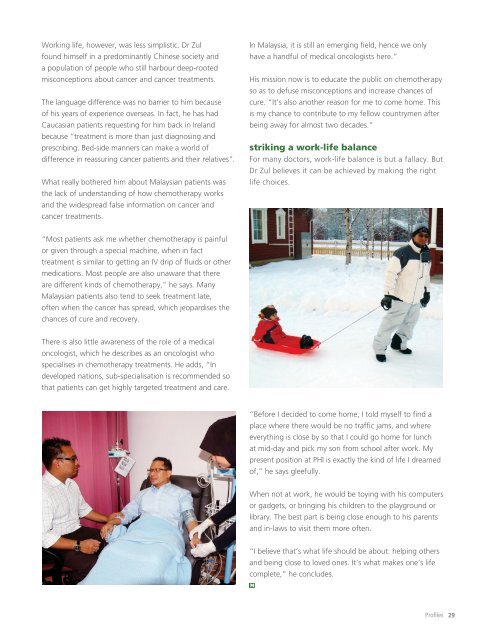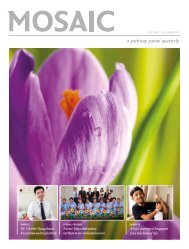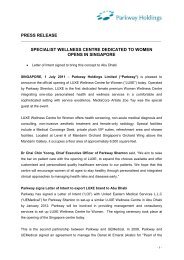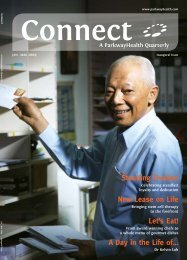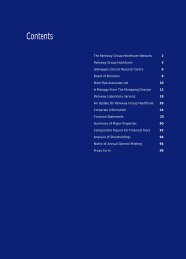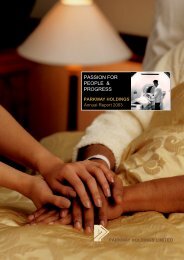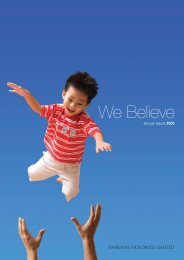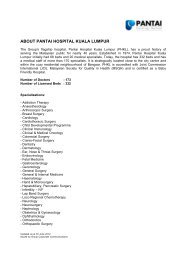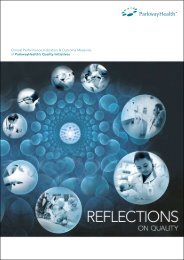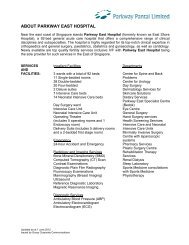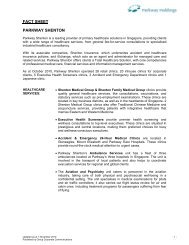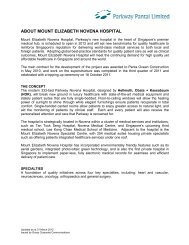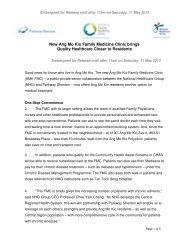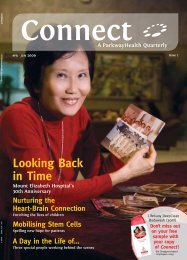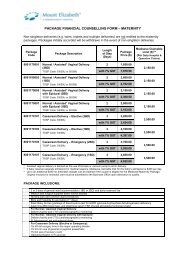Download - Parkway Pantai
Download - Parkway Pantai
Download - Parkway Pantai
Create successful ePaper yourself
Turn your PDF publications into a flip-book with our unique Google optimized e-Paper software.
Working life, however, was less simplistic. Dr Zulfound himself in a predominantly Chinese society anda population of people who still harbour deep-rootedmisconceptions about cancer and cancer treatments.The language difference was no barrier to him becauseof his years of experience overseas. In fact, he has hadCaucasian patients requesting for him back in Irelandbecause “treatment is more than just diagnosing andprescribing. Bed-side manners can make a world ofdifference in reassuring cancer patients and their relatives”.What really bothered him about Malaysian patients wasthe lack of understanding of how chemotherapy worksand the widespread false information on cancer andcancer treatments.In Malaysia, it is still an emerging field, hence we onlyhave a handful of medical oncologists here.”His mission now is to educate the public on chemotherapyso as to defuse misconceptions and increase chances ofcure. “It’s also another reason for me to come home. Thisis my chance to contribute to my fellow countrymen afterbeing away for almost two decades.”striking a work-life balanceFor many doctors, work-life balance is but a fallacy. ButDr Zul believes it can be achieved by making the rightlife choices.“Most patients ask me whether chemotherapy is painfulor given through a special machine, when in facttreatment is similar to getting an IV drip of fluids or othermedications. Most people are also unaware that thereare different kinds of chemotherapy,” he says. ManyMalaysian patients also tend to seek treatment late,often when the cancer has spread, which jeopardises thechances of cure and recovery.There is also little awareness of the role of a medicaloncologist, which he describes as an oncologist whospecialises in chemotherapy treatments. He adds, “Indeveloped nations, sub-specialisation is recommended sothat patients can get highly targeted treatment and care.“Before I decided to come home, I told myself to find aplace where there would be no traffic jams, and whereeverything is close by so that I could go home for lunchat mid-day and pick my son from school after work. Mypresent position at PHI is exactly the kind of life I dreamedof,” he says gleefully.When not at work, he would be toying with his computersor gadgets, or bringing his children to the playground orlibrary. The best part is being close enough to his parentsand in-laws to visit them more often.“I believe that’s what life should be about: helping othersand being close to loved ones. It’s what makes one’s lifecomplete,” he concludes.Profiles 29


